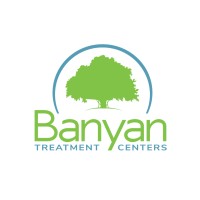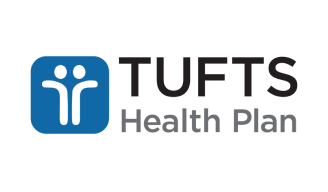Baldwinville, Massachusetts, United States
Clearbrook Massachusetts
Verified
Verified
This provider’s information has been quality-checked by Recovery.com’s Research Team for accuracy and completeness, including center verification through appropriate third-party organizations.
Joint Commission Accredited
The Joint Commission accreditation is a voluntary, objective process that evaluates and accredits healthcare organizations (like treatment centers) based on performance standards designed to improve quality and safety for patients. To be accredited means the treatment center has been found to meet the Commission's standards for quality and safety in patient care.
Provider's Policy
Clearbrook Massachusetts and Clearbrook Pennsylvania accept most major health insurance providers and will help you navigate coverage options to ensure that you maximize your available benefits. Whether you are seeking rehab centers that accept Blue Cross Blue Shield, United Healthcare, or more, we accept numerous insurance companies to meet your needs. Insurance coverages vary depending on your policy.
Estimated Cash Pay Rate
The cost listed here ($1000 per day) is an estimate of the cash pay price. Center pricing can vary based on program and length of stay. Contact the center for more information. Recovery.com strives for price transparency so you can make an informed decision.
About Clearbrook Massachusetts
For patients seeking a path to recovery, Clearbrook Treatment Center offers a place of safety, structure, and unwavering support. They lead patients from medical detox through residential care for both addiction and mental health. They also proudly extend their expertise to those who serve others, including programs for military members, veterans, and first responders.
Heal Deeply, Not Just Quickly
At Clearbrook, treatment is never one-size-fits-all—it’s personal and intentionally designed with lasting change in mind. Each patient receives an individualized treatment plan tailored to their needs. Through a blend of time-tested therapies, patients address not only addiction, but mental health concerns that lie beneath it. Their structured programs keep patients engaged in meaningful work—whether through one-on-one sessions, group therapy, or wellness activities that encourage resilience.
Feel Safe, Supported, and Rested
In the quiet hills of Baldwinville, Massachusetts, Clearbrook offers a serene setting that helps patients focus fully on recovery. The facility has a peaceful, home-like atmosphere, creating a space that feels safe and restorative. Patients stay in comfortable rooms and have access to amenities that support their wellness—like recreation areas, shared lounge spaces, chef-prepared meals, and on-site fitness options.
Read More

Insurance Accepted
Provider's Policy:Clearbrook Massachusetts and Clearbrook Pennsylvania accept most major health insurance providers and will help you navigate coverage options to ensure that you maximize your available benefits. Whether you are seeking rehab centers that accept Blue Cross Blue Shield, United Healthcare, or more, we accept numerous insurance companies to meet your needs. Insurance coverages vary depending on your policy.
Find Many Ways to Heal in a Place that Gets It
Recovery is a deeply personal journey, and there is no single path to healing. They offer a diverse range of specialized programs to meet patients where they are. Whether they’re drawn to the structure of the 12-step program, the introspection of art therapy, the science of biofeedback, or the spiritual nature of faith-based counseling, there’s a path for everyone at Clearbrook.
Understand the Why, Not Just the What
For patients facing the challenges of addiction, it’s rarely a solitary battle. Clearbrook is equipped and ready to provide the support needed to address both substance use and mental health concerns, including anxiety, depression, trauma, and more. They don’t just help alleviate symptoms—they uncover the root causes so patients can achieve genuine recovery.
Protect Progress, Even when Life Gets Hard
Recovery takes courage—and keeping it takes support and the right tools. At Clearbrook, their relapse prevention program helps patients hold onto the progress they have made, even when life gets hard. They work with patients to uncover triggers and understand their patterns. Then, they co-create a personalized plan to keep patients grounded in their “why” long after they leave.
Access Compassionate Care—Right from Home
Clearbrook Massachusetts offers a telehealth intensive outpatient program (IOP) for individuals facing mental health challenges—bringing expert support straight to patients, wherever they are. This online program brings the same caliber of individual and group therapy, education, and support in a format that’s convenient and private.

Center Overview
Estimated Cash Pay Rate
Men and Women
Men and women attend treatment for addiction in a co-ed setting, going to therapy groups together to share experiences, struggles, and successes.
Pregnant Women
Addiction and mental health treatment meets the clinical and psychological needs of pregnant women, ensuring they receive optimal care in all areas.
Professionals
Busy, high-ranking professionals get the personalized treatment they need with greater accommodations for work, privacy, and outside communication.
Veterans
Patients who completed active military duty receive specialized treatment focused on trauma, grief, loss, and finding a new work-life balance.

Treatment Focus
You can admit to this center with a primary substance use disorder or a primary mental health condition. You'll receive support each step of the way and individualized care catered to your unique situation and diagnosis.

Care Options







Treatment
Specializations
Alcohol
Using alcohol as a coping mechanism, or drinking excessively throughout the week, signals an alcohol use disorder.
Anxiety
Anxiety is a common mental health condition that can include excessive worry, panic attacks, physical tension, and increased blood pressure.
Detox
Detox fully and safely removes toxic substances from the body, allowing the next steps in treatment to begin with a clean slate.
Co-Occurring Disorders
A person with multiple mental health diagnoses, such as addiction and depression, has co-occurring disorders also called dual diagnosis.
Cocaine
Cocaine is a stimulant with euphoric effects. Agitation, muscle ticks, psychosis, and heart issues are common symptoms of cocaine abuse.
Drug Addiction
Drug addiction is the excessive and repetitive use of substances, despite harmful consequences to a person's life, health, and relationships.
Licensed Primary Mental Health
Some primary care providers offer mental health diagnosis and treatment. This can prevent patients from developing more serious conditions.
Approaches
Evidence-Based
A combination of scientifically rooted therapies and treatments make up evidence-based care, defined by their measured and proven results.
Holistic
A non-medicinal, wellness-focused approach that aims to align the mind, body, and spirit for deep and lasting healing.
Medical
Medical addiction treatment uses approved medications to manage withdrawals and cravings, and to treat contributing mental health conditions.
Personalized Treatment
The specific needs, histories, and conditions of individual patients receive personalized, highly relevant care throughout their recovery journey.
Therapies
1-on-1 Counseling
Patient and therapist meet 1-on-1 to work through difficult emotions and behavioral challenges in a personal, private setting.
Mindfulness Therapy
This ancient practice can be mental, emotional, and even spiritual. In meditation, you focus your attention on the present moment without judgement.
Adventure Therapy
This experiential approach uses the physical and emotional challenges of outdoor activities as tools for personal growth.
Animal Therapy
Animals can inspire trust and self-worth. In this experiential therapy, guided interactions are used to improve social skills and emotion regulation.
Art Therapy
Visual art invites patients to examine the emotions within their work, focusing on the process of creativity and its gentle therapeutic power.
Family Therapy
Family therapy addresses group dynamics within a family system, with a focus on improving communication and interrupting unhealthy relationship patterns.
Life Skills
Teaching life skills like cooking, cleaning, clear communication, and even basic math provides a strong foundation for continued recovery.
Medication-Assisted Treatment
Combined with behavioral therapy, prescribed medications can enhance treatment by relieving withdrawal symptoms and focus patients on their recovery.
Conditions We Treat
Anxiety
Anxiety is a common mental health condition that can include excessive worry, panic attacks, physical tension, and increased blood pressure.
Depression
Symptoms of depression may include fatigue, a sense of numbness, and loss of interest in activities. This condition can range from mild to severe.
Post Traumatic Stress Disorder
PTSD is a long-term mental health issue caused by a disturbing event or events. Symptoms include anxiety, dissociation, flashbacks, and intrusive thoughts.
Trauma
Some traumatic events are so disturbing that they cause long-term mental health problems. Those ongoing issues can also be referred to as "trauma."
Substances We Treat
Alcohol
Using alcohol as a coping mechanism, or drinking excessively throughout the week, signals an alcohol use disorder.
Benzodiazepines
Benzodiazepines are prescribed to treat anxiety and sleep issues. They are highly habit forming, and their abuse can cause mood changes and poor judgement.
Chronic Relapse
Consistent relapse occurs repeatedly, after partial recovery from addiction. This condition requires long-term treatment.
Co-Occurring Disorders
A person with multiple mental health diagnoses, such as addiction and depression, has co-occurring disorders also called dual diagnosis.
Cocaine
Cocaine is a stimulant with euphoric effects. Agitation, muscle ticks, psychosis, and heart issues are common symptoms of cocaine abuse.
Drug Addiction
Drug addiction is the excessive and repetitive use of substances, despite harmful consequences to a person's life, health, and relationships.
Ecstasy
Ecstasy is a stimulant that causes intense euphoria and heightened awareness. Abuse of this drug can trigger depression, insomnia, and memory problems.
Psychedelics
Hallucinogenic drugs—like LSD—cause euphoria and increased sensory experiences. When abused, they can lead to depression and psychosis.
Methamphetamine
Methamphetamine, or meth, increases energy, agitation, and paranoia. Long-term use can result in severe physical and mental health issues.
Aftercare
Experience
Personal Amenities
Amenities
Special Considerations
Pet Friendly
For greater comfort and healing, pet-friendly treatment centers welcome dogs and animal companions to stay with their owners while they attend treatment.
Gender-specific groups
Patients in gender-specific groups gain the opportunity to discuss challenges unique to their gender in a comfortable, safe setting conducive to healing.
Healthy Meals are provided
Great food meets great treatment, with providers serving healthy meals to restore nutrition, wellbeing, and health.
Activities
Yoga
Yoga is both a physical and spiritual practice. It includes a flow of movement, breathing techniques, and meditation.
Off-Site Activities
Off-Site Amenities
Professional Staff

Alexandria Forgues
Office Manager

Tyler Supczak
Operations Supervisor

Eric L'etoile
Regional Facilities Director

Harry Fraser
Veterans Specialist and Interventionist
View More Team Members
We love hearing about your treatment experience
Help individuals and families seeking treatment by sharing your first-hand experience with this treatment provider. Review Guidelines.

























